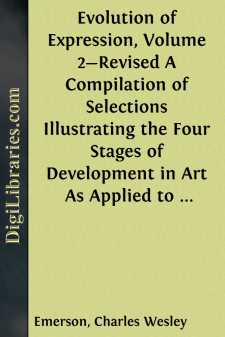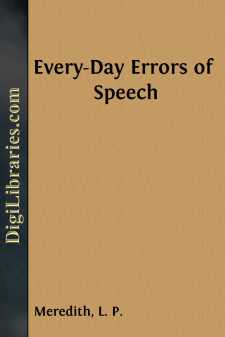Fiction
- Action & Adventure 180
- Biographical 15
- Christian 59
- Classics
- Coming of Age 5
- Contemporary Women 3
- Erotica 8
- Espionage/Intrigue 12
- Fairy Tales, Folklore & Mythology 236
- Family Life 169
- Fantasy 117
- Gay 1
- General 596
- Ghost 32
- Historical 808
- Horror 43
- Humorous 160
- Jewish 25
- Legal 4
- Medical 22
- Mystery & Detective 315
- Political 49
- Psychological 41
- Religious 64
- Romance 159
- Sagas 11
- Science Fiction 730
- Sea Stories 113
- Short Stories (single author) 537
- Sports 10
- Suspense 1
- Technological 8
- Thrillers 2
- Urban Life 31
- Visionary & Metaphysical 1
- War & Military 173
- Westerns 199
Classics Books
Sort by:
by:
Judith Merril
I don't know where they got the car. We made three or four stops before the last one, and they must have picked it up one of those times. Anyhow, they got it, but they had to make a license plate, because it had the wrong kind on it. They made me some clothes, too—a skirt and blouse and shoes that looked just like the ones we saw on television. They couldn't make me a lipstick or any of...
more...
HENRY DAVID THOREAU was the last male descendant of a French ancestor who came to this country from the Isle of Guernsey. His character exhibited occasional traits drawn from this blood in singular combination with a very strong Saxon genius. He was born in Concord, Massachusetts, on the 12th of July, 1817. He was graduated at Harvard College in 1837, but without any literary distinction. An iconoclast...
more...
by:
Various
ELIZABETH FRY. I. BIRTH AND EARLY YEARS. Elizabeth Fry was born in Norwich, on the 21st of June, 1780. She was the third daughter of John Gurney, of Earlham, Norfolk, and Catherine Bell, daughter of Daniel Bell, merchant in London. Mrs. Bell was a descendant of the ancient family of the Barclays of Ury in Kincardineshire, and granddaughter of Robert Barclay, the well-known apologist of the Quakers....
more...
CHAPTER I TWO weeks of instructive contact with the Bar-7 school of gallantry had prepared Mrs. Laithe to be amazed at her first encounter with Ewing's kid. Riding out from the ranch one afternoon and turning, for coolness, up the wooded mesa that rises from the creek flat, she overwhelmed him at a bend in the trail. Stricken motionless, he glared at the lady with eyes in which she was compelled...
more...
SLIDE. Thus far in the student's development, his mind has dealt chiefly with each subject as a Whole. Now he begins to find a new interest in showing his hearers that the discourse is made up of a series of definite Parts. He takes delight in fixing their attention upon each part in succession. As in crossing a brook on stones, a person poises for a moment, first on one stone, then on another, so...
more...
by:
Frank B. Jevons
I.OPTIMISM Innumerable writers at the end of the nineteenth century have reviewed the changes which in the last fifty years have come over the civilised world. The record indeed is admitted on all hands to be marvellous. Steam, electricity, machinery, and all the practical inventions of applied science have added enormously to the material wealth, comfort, and luxury of mankind. Intellectually, the...
more...
by:
Mark Ganes
oger Thane had, of course, heard of these meetings. The stories of his acquaintances in Liaison had been graphic enough but they didn't begin to do the scene justice. It was, well, jarring. Through the one-way glass panel built into one side of the vast meeting hall of the space station, Thane looked directly across at the delegation from Onzar, though "delegation" was hardly the word. All...
more...
by:
L. P. Meredith
It may be regarded as one of the commendable peculiarities of the English language that, despite provincialisms, vulgarisms, neglected education, foreign accent, and the various corrupting influences to which it is subjected, it may be understood wherever it is heard, whatever differences of distance or associations may have existed between the speaker and the listener, both claiming familiarity with...
more...
by:
Fanny Burney
TO THE AUTHORS OF THE MONTHLY AND CRITICAL REVIEWS. GENTLEMEN, The liberty which I take in addressing to you the trifling production of a few idle hours, will doubtless move your wonder, and probably your contempt. I will not, however, with the futility of apologies, intrude upon your time, but briefly acknowledge the motives of my temerity; lest, by a premature exercise of that patience which I hope...
more...
by:
Benjamin Jowett
INTRODUCTION. In the Meno, Anytus had parted from Socrates with the significant words: 'That in any city, and particularly in the city of Athens, it is easier to do men harm than to do them good;' and Socrates was anticipating another opportunity of talking with him. In the Euthyphro, Socrates is awaiting his trial for impiety. But before the trial begins, Plato would like to put the world on...
more...











